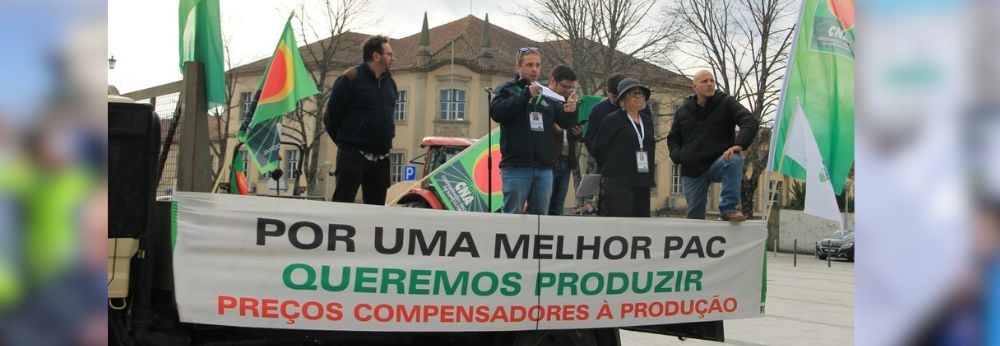Farmers’ protests in Europe and the deadend of neoliberalism

Below is an excerpt from an opinion piece by Morgan Ody and Vincent Delobel of La Via Campesina, which was published on Al Jazeera on February 25th.
These are people who produce Europe’s food – whether conventionally or organically, on a small or a medium scale. They stand united by a shared reality: They are fed up with spending their lives working incessantly without ever getting a decent income.
We have reached this point after decades of neoliberal agricultural policies and free trade agreements. Production costs have risen steadily in recent years, while prices paid to farmers have stagnated or even fallen.
Faced with this situation, farmers have pursued various economic strategies. Some have tried to increase production to compensate for the fall in prices: They have bought more land, invested in machinery, taken on a lot of debt and seen their workload increase significantly. The stress and declining incomes have created a great deal of frustration.
Other farmers have sought better prices for their produce by turning to organic farming and short distribution channels. But for many, these markets collapsed after the COVID-19 pandemic.
All the while, through mergers and speculation, large agroindustrial groups have gotten bigger and stronger, putting increased pressure on prices and practices for farmers.
ECVC has actively taken part in the mobilisations of farmers in Europe. Our members have also been hit hard by dwindling incomes, the stress linked to high levels of debt, and the excessive workload. We clearly see that the European Union’s embrace of WTO-promoted policies of deregulation of agricultural markets in favour of big agribusiness and the destructive international competition are directly responsible for our plight.
Since the 1980s, various regulations that ensured fair prices for European farmers have been dismantled. The EU put all its faith in free trade agreements, which placed all the world’s farmers in competition with each other, encouraging them to produce at the lowest possible price at the cost of their own incomes and growing debt.
In recent years, however, the EU has announced its intention to move towards a more sustainable agricultural model, notably with the Farm to Fork Strategy, which is the agricultural component of the Green Deal.
Farmers’ organisations welcomed this ambition, but we also stressed that the sustainability of European agriculture could not be improved without breaking away from the logic of international competitiveness. Producing ecologically has huge benefits for the health and the planet, but it costs more for the farmers, and so to achieve the agroecological transition, agricultural markets need to be protected. Unfortunately, we were not heard.
